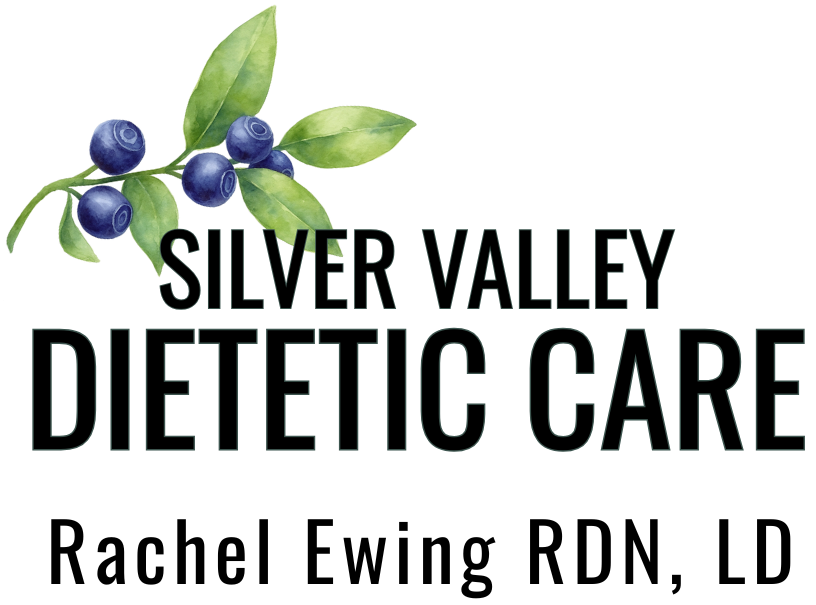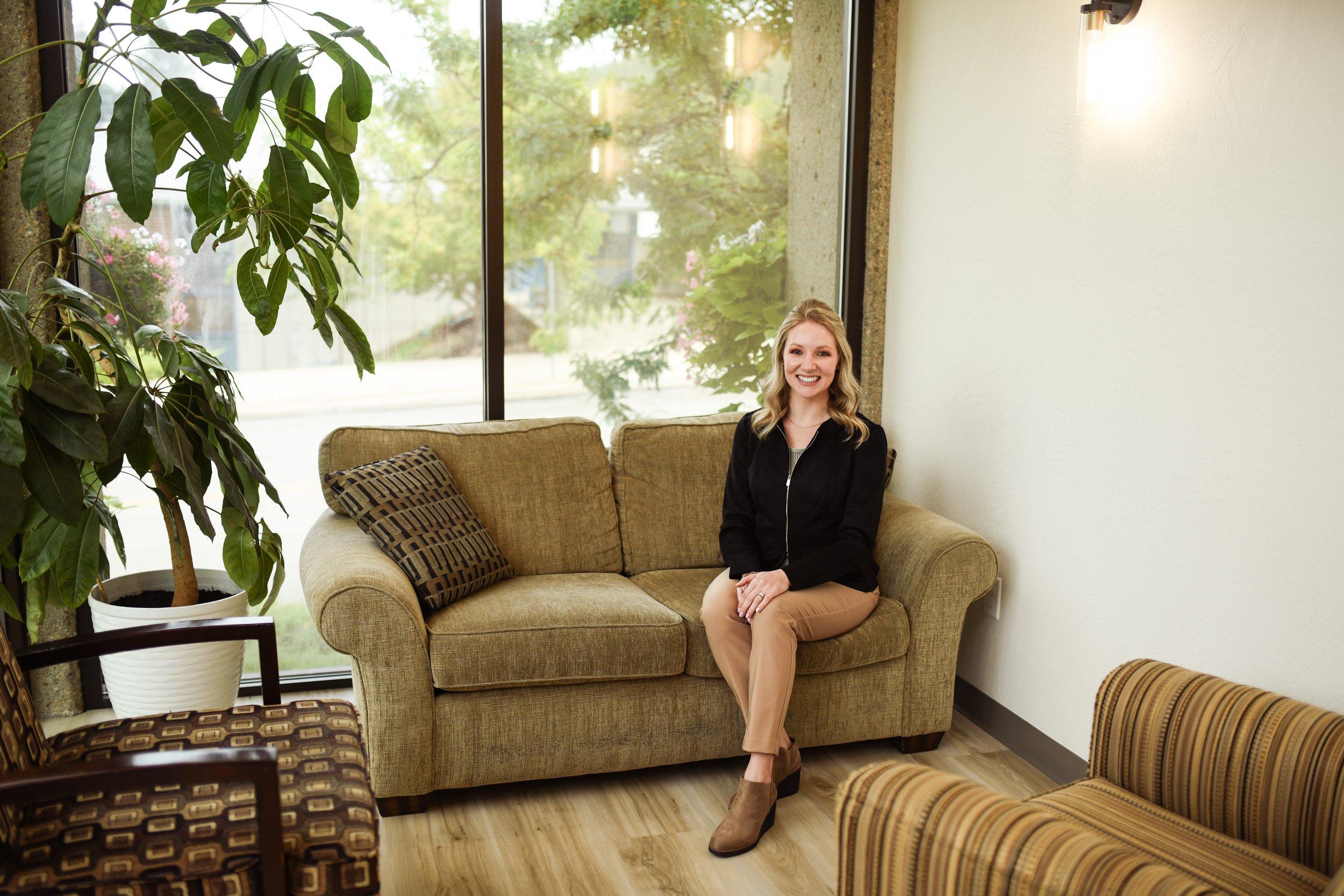
Meet the dietitian
Rachel Ewing, RDN, LD
Warmest greetings!
Thank you for allowing me to share a bit about myself professionally and personally. I have served as a registered dietitian for 12 years, exploring the field of nutrition and dietetics throughout the Northwest. For the past four years, it has been a joy to work with patients at Heritage Health in Kellogg, Idaho. In 2025, it was time to throw the net wider and open Silver Valley Dietetic Care to broaden the group of patients I am able to see in our community.
My nutrition care perspective is to “provide, not deprive.” Focus areas in my practice include using a whole foods approach, honoring personal responsibility, and promoting peace with food. I deeply enjoy working with people of all walks of life, cherishing the opportunity to get to know them and their families. Health concerns I specifically like addressing are gut dysbiosis, post-cholecystectomy syndrome, metabolic dysfunction-associated steatotic liver disease (MASLD), and acid reflux (GERD). Strategizing and problem-solving to supply appropriate nutrition throughout the lifecycle, from precious newborns to our honored elderly, is also a special joy to me.
My family has the great pleasure of living in Kingston, Idaho! My husband, Ryan, and I have been members of the Silver Valley community for the past nine years and are long-time North Idahoans. We enjoy recreating all over these mountains, rivers, and lakes. I am a long distance runner, when I have the time, and enjoy road and trail racing. My personal time is poured into educating my three young children at home, connecting with friends on the Trail of the Coeur d’Alenes, cooking meals for those around my dinner table, serving alongside church family at Worship Center in Smelterville, and making memories with extended family throughout the Pacific Northwest.
What Is Nutrition and Dietetics?
Nutrition is the scientific study of how food affects the health of living organisms. It explores how the body processes nutrients through ingestion, digestion, absorption, transport, use, and elimination. Together, these processes make up metabolism.
Dietetics is defined as ‘the application of the science of nutrition to the human being in health and disease.’
What Is a Registered Dietitian?
A Registered Dietitian (RD), also referred to as a Registered Dietitian Nutritionist (RDN), is a licensed healthcare professional regarded as the field of nutrition’s experts. Dietitians unite scientific research, behavioral science, and social science in their care for healthy and sick people. They specialize in translating scientific insights into real-world dietary guidance.
RDNs must complete a bachelor’s or master’s degree in nutrition and dietetics, undergo at least 1,200 hours of supervised practice through an Accreditation Council for Education in Nutrition and Dietetics (ACEND) accredited program, and pass a national registration exam. They must also complete continuing education to maintain their credentials certified by the Commission on Dietetic Registration (CDR).
In the practice of nutrition, required areas of study for dietitians include organic chemistry, biochemistry, anatomy & physiology, genetics, microbiology, pharmacology, research & statistics, psychology, sociology, and anthropology.
In the practice of dietetics, required competencies for dietitians include:
Research methodology, integration of research principles into evidence-based practice
Principles and techniques of effective education, counseling, and behavior change theories and techniques
Medical Nutrition Therapy (MNT)
Environment, food, and nutrition in health promotion and disease prevention
Fundamentals of public policy
Healthcare delivery systems
Food science and food systems
Quality management of food and nutrition services
The governance of nutrition and dietetics practice, including the Scope of Nutrition and Dietetics Practice and the Code of Ethics for the Profession of Nutrition and Dietetics



